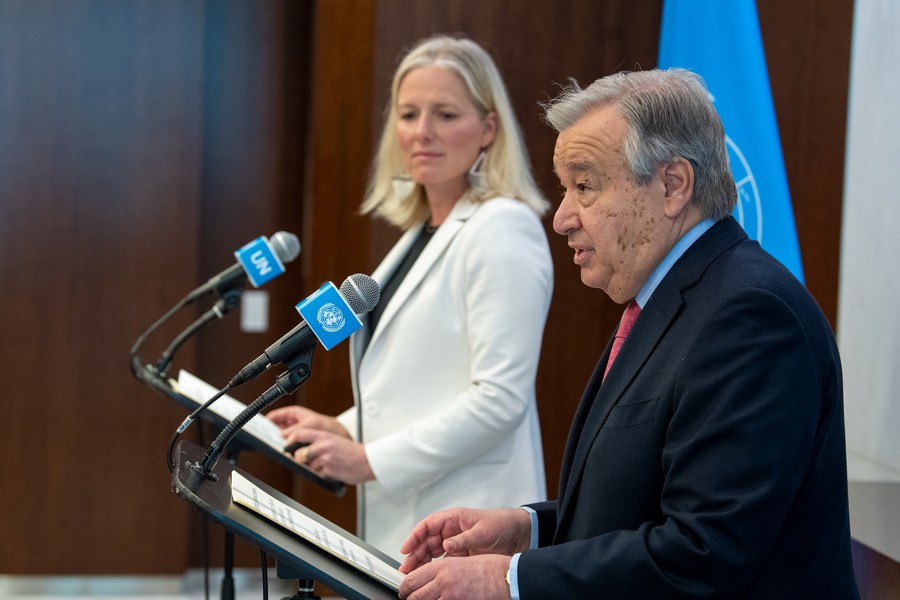World must peak emissions by 2025, say researchers
By ANGUS McNEICE in London | China Daily Global | Updated: 2022-04-06 09:31

The United Nations Secretary General Antonio Guterres has criticized government and business leaders for a "litany of broken climate promises", after a new report showed that greenhouse gas emissions have increased across all major sectors globally since 2010.
Reacting to the latest findings in the Sixth Assessment Report from the Intergovernmental Panel on Climate Change, or IPCC, Guterres said that the "jury has reached a verdict and it is damning".
"This report… is a file of shame, cataloging the empty pledges that put us firmly on track toward an unlivable world," Guterres said. "Some government and business leaders are saying one thing-but doing another. Simply put, they are lying."
The IPCC report found that global net anthropogenic emissions have continued to rise across all major groups of greenhouse gasses, from 53 gigatons of annual emissions in 2010 to 59 gigatons in 2019.
Emissions grew on average by 1.3 percent annually over the period, the report found, which was a slower rate than the previous decade when emissions rose by an average of 2.1 percent each year.
Authors of the report, which include 278 experts from 65 countries, said drastic action is needed in order to keep global warming to within 2 C and 1.5 C this century, a target laid out in the Paris Agreement of 2015.
To achieve the smaller increase target, the report said, global emissions must peak by 2025, be reduced by 43 percent by 2030, and reach net neutrality by the early 2050s. In a scenario where 2 C is the target, emissions must peak by 2025, be cut to a quarter by 2030, and net-zero emissions must be reached by 2070.
The IPCC experts stressed the need to halt new fossil fuel projects and invest heavily in renewable energy projects. In a separate report released last week, the International Renewable Energy Agency lamented the fact that several nations are considering expanding domestic fossil fuel activity in response to foreign gas and oil price hikes and concerns over energy security brought on by the Ukraine conflict.
Guterres said that increasing production of fossil fuels is "truly dangerous" and would keep the world on a "fast track to climate disaster".
"Investing in new fossil fuels infrastructure is moral and economic madness," he said. "Such investments will soon be stranded assets-a blot on the landscape, and a blight on investment portfolios."
The IPCC report said that social change, including widespread adoption of low-carbon diets and forms of transport, will be needed to reach climate targets, and experts also stressed the importance of removing carbon dioxide from the atmosphere, be it by planting more trees or investing in carbon capture technologies.
Currently, such technologies are too expensive to reach scale, but Stuart Haszeldine, a professor of carbon capture and storage at the University of Edinburgh, said that this would change if polluters were obligated to play a role in emissions storage.
"Production licenses for new fossil fuels in all countries must be combined with a producer responsibility obligation to balance the tons of carbon extracted with the same or more tons of carbon stored," said Haszeldine. "No subsidy, just include the proper cleanup cost. That is net zero."
























